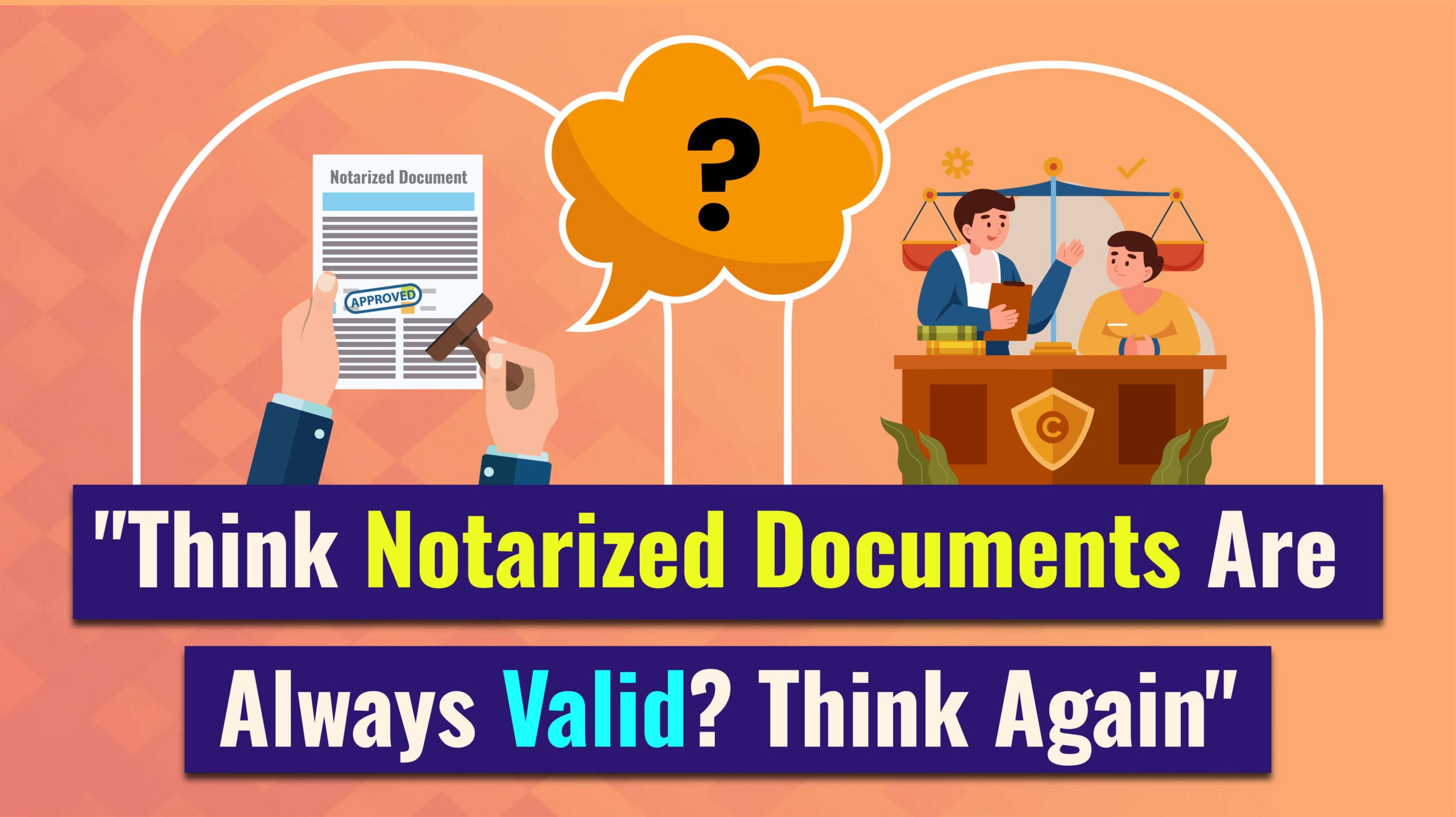
Have you ever wondered if a notarized document can truly protect you in court? Notarized documents are important in many legal matters, like real estate or powers of attorney. However, many assume notarization guarantees a document’s validity—this isn’t always true. In this article, we’ll explain the purpose, validity, and limits of notarized documents, and share tips to ensure they hold up in court. But first, let’s take a closer look at what a notarized document is and its key features.
What is a Notarized Document?
A notarized document is a written agreement or legal instrument that has been verified by a notary public. A notary public is a state-appointed official who serves as an impartial witness during the signing of documents. Their role ensures that the identities of the signers are verified and that the document is signed willingly and knowingly.
Key Features of Notarized Documents
- Identity Verification: The notary confirms the identities of the individuals signing the document.
- Voluntary Signing: Ensures that all parties sign without force.
- Record Keeping: Notaries maintain a log of notarizations, which serves as a reference for authenticity.
The Purpose of Notarization
The primary purpose of notarization is to reduce fraud and enhance the credibility of a document. By having an impartial third party witness the signing, notarization adds an extra layer of protection, ensuring the document is executed correctly.
Benefits of Notarization:
- Legal Protection: Documents are presumed to be valid when used in legal settings.
- Enhanced Credibility: A notarized document is trusted, making it less likely to be challenged.
- Dispute Reduction: Reduces the chance of future disputes regarding the authenticity of the document.
Do Notarized Documents Hold Up in Court?
Yes, notarized documents generally hold up in court, but several factors can influence their validity. Courts typically view notarized documents as credible evidence, but notarization alone doesn’t guarantee that the document will be upheld in every case.
Key Considerations
- State Laws: Notarization requirements can vary from state to state.
- Proper Execution: The notarization process must be carried out according to legal procedures.
- Content of the Document: Notarization does not validate the content or legality of the document. For example, if a contract is signed by a notary but includes illegal clauses, the document could be void.
- Challenges to Authenticity: Even a notarized document can be contested in court if there are allegations of fraud, misrepresentation, or force.
Real-World Example
In one case, a notarized deed helped a family win a property dispute, demonstrating the power of proper notarization. However, in another case, a notarized will was contested because the signer was alleged to have been under duress during the signing, highlighting the importance of a notarization process free from fraud.
Common Misconceptions about Notarization
Despite its importance, there are several myths about notarization that could lead to costly mistakes:
- Notarization Equals Legal Validity: Notarization only certifies that the document was signed properly. It does not validate the legality or fairness of the content.
- All Notaries Have the Same Role: Notary duties and regulations can differ depending on the jurisdiction and the type of document being notarized.
- Notarized Documents Are Immune to Challenges: Notarized documents can still be contested in court if there are issues such as fraud, force or improper execution.
Factors Affecting the Validity of Notarized Documents
To ensure your notarized document holds up in court, consider these crucial factors:
- Capacity: The signer must be of legal age and sound mind when signing the document.
- Intent: The signer must fully understand the document’s terms and voluntarily agree to them.
- Procedural Compliance: The notary must follow proper procedures, such as verifying identity and applying an official seal.
- No Conflicts of Interest: The notary should have no personal interest in the transaction or document being notarized.
How to Ensure Your Notarized Document is Valid
Follow these best practices:
- Work with a Qualified Notary: Choose an experienced and licensed notary public. They should be familiar with local laws and procedures.
- Double-Check Information: Carefully verify all details, including names, dates, and document terms before the notary signs off.
- Be Present: Sign the document in the presence of the notary, as they must witness the act of signing.
- Understand the Document: Ensure that you fully understand what you’re signing and its implications.
- Maintain Records: Keep a copy of the notarized document and any supporting documents for your records.
- Consult Legal Professionals: For complex or high-stakes documents, consult a lawyer to ensure everything is in order and that your document is legally sound.
FAQs
Notarization doesn’t guarantee a document’s validity in court. While it verifies the signing process, the document’s content, how it was executed, and local laws also affect its validity.
Yes, a notarized document can still be challenged in court. It may be contested if there are issues such as fraud, and force, or if the notary did not follow proper procedures. In such cases, the court may investigate further before determining the document’s validity.
To ensure your notarized document is valid, make sure to:
Choose a qualified and knowledgeable notary.
Ensure the document is signed voluntarily and with full understanding.
Keep a copy of the notarized document for your records.
Seek legal advice if the document is complex or involves high stakes.
No, notarization laws can vary by state, including the process and requirements. It’s vital to work with a notary familiar with your state’s laws to ensure the process is done correctly.
Conclusion
Notarized documents play a crucial role in legal processes and can be important in court when done correctly. However, they are not guaranteed to be error-free. Understanding notarization’s purpose, limits, and requirements helps ensure your documents are valid. Working with qualified notaries, following proper procedures, and getting legal advice when needed can help you avoid costly mistakes and protect your interests.
📢Ready to ensure your important documents stand up in court? At The Notary Folks, we provide reliable and professional notarization services to ensure your legal documents are executed correctly and meet all legal requirements.
Don’t risk costly mistakes – let our experts handle your notarization today!
Contact us now or schedule your notarization appointment.
Protect your future with confidence!


